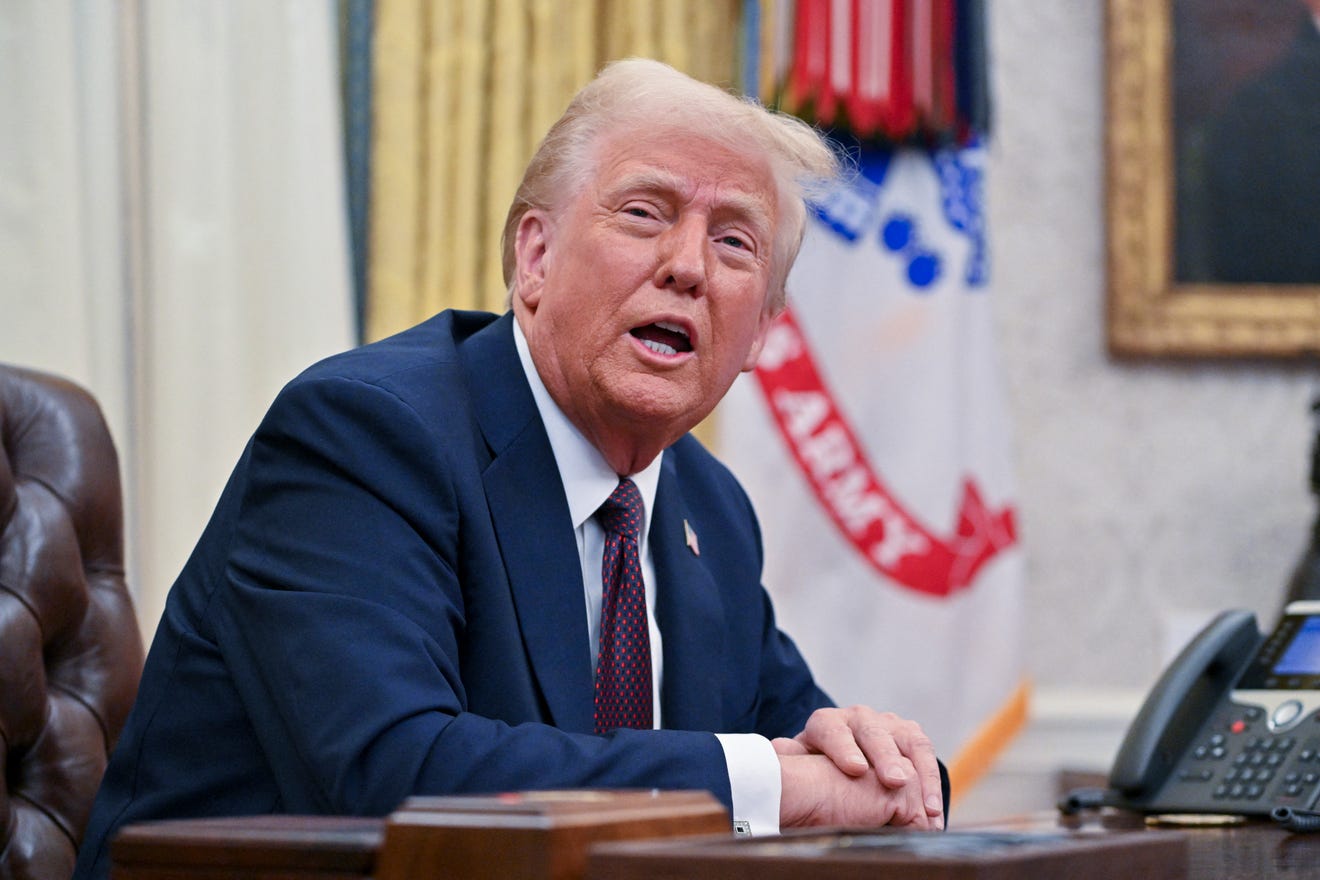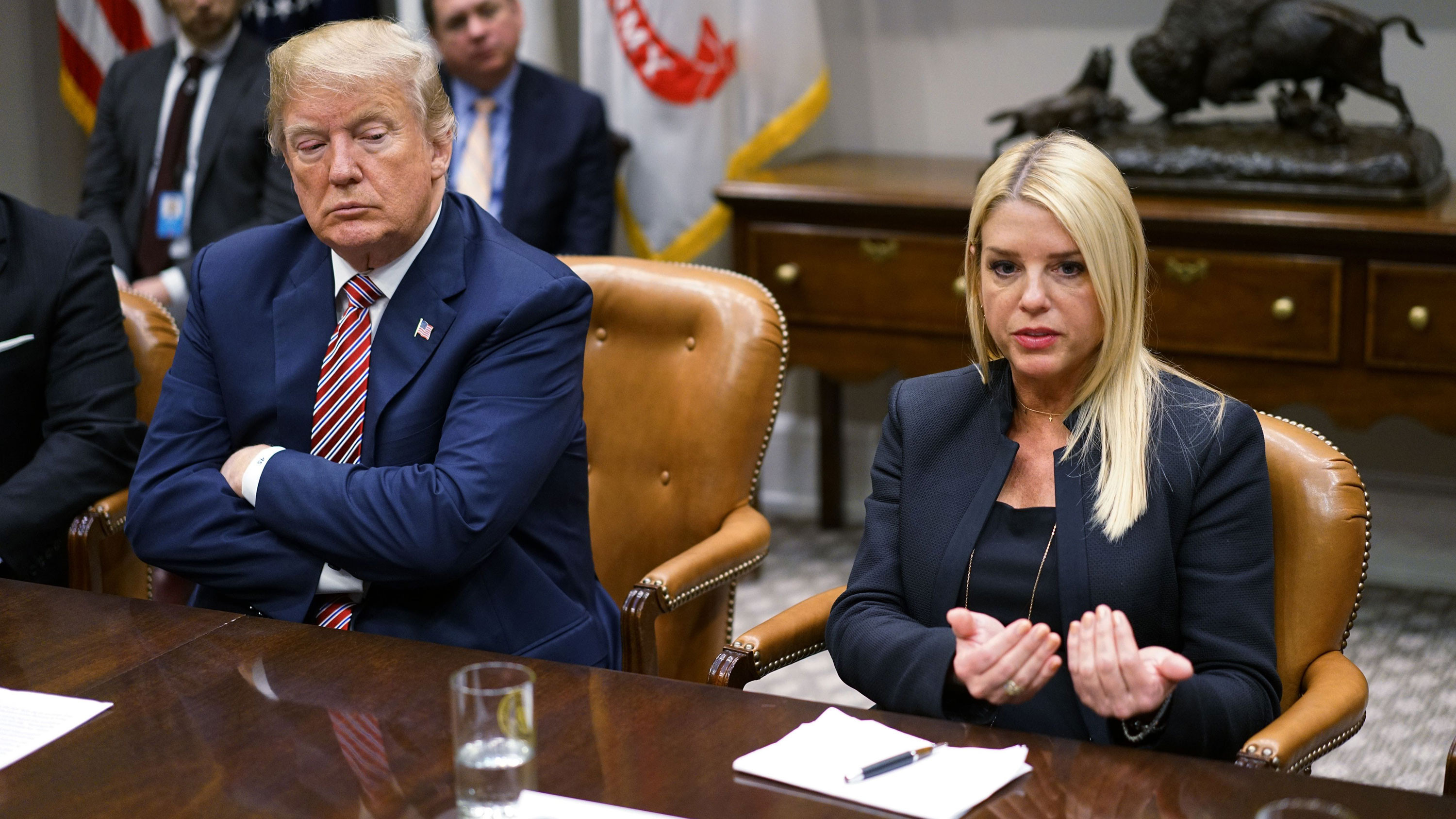Trump Administration's Influence On Europe's AI Regulatory Framework

Table of Contents
Transatlantic Tensions and the Rise of "Data Sovereignty"
Data sovereignty, the principle that countries have the right to regulate the flow of data within their borders, has become a central theme in AI regulation. The Trump administration's emphasis on national interests and its approach to data protection significantly impacted European perceptions of US tech giants. This perceived lack of robust data protection in the US, coupled with concerns about US surveillance programs, fueled a growing distrust among European policymakers. This distrust, in turn, accelerated the development of stricter data protection regulations within Europe.
- Increased scrutiny of US companies' data handling practices in Europe: The GDPR (General Data Protection Regulation) emerged as a direct response to concerns about data privacy and the transfer of personal data across borders, reflecting a heightened level of scrutiny toward US-based companies.
- Concerns about US surveillance and its impact on European citizens' data privacy: Revelations about US surveillance programs, such as PRISM, further solidified European anxieties and intensified the push for greater data sovereignty.
- The emergence of "data localization" policies in Europe as a response: Many European countries began implementing data localization policies, requiring companies to store European citizens' data within the EU, reducing reliance on US-based servers and data centers. This trend directly challenged the global reach of US tech giants.
This rise of data sovereignty significantly altered the transatlantic relationship on data governance and shaped the subsequent evolution of Europe's AI regulatory framework, making it more independent and less reliant on US-led initiatives. The infamous Schrems II ruling, which invalidated the Privacy Shield agreement for data transfers between the EU and the US, exemplifies these escalating tensions.
The Impact of Trade Disputes on AI Development and Regulation
The Trump administration's initiation of trade disputes, particularly with China, had indirect but significant consequences for AI regulation in Europe. The uncertainty created by these trade wars impacted investment in AI research and development within Europe, prompting a shift towards building more independent AI ecosystems.
- Increased focus on building independent AI ecosystems in Europe: European policymakers recognized the need to reduce dependence on US and Chinese technologies and supply chains. This led to increased funding for domestic AI research and initiatives aimed at fostering European technological leadership.
- Concerns about dependence on US technology and supply chains: The trade disputes highlighted the vulnerabilities of relying on single sources for crucial technologies. Europe sought to diversify its technological partnerships and strengthen its own technological capabilities.
- Stimulation of EU investment in domestic AI research and development: Significant increases in funding for AI research and development programs within the EU can be directly linked to a desire for greater technological autonomy, a consequence of the geopolitical uncertainty created by the trade disputes of the Trump era.
Data reveals a substantial increase in EU funding for AI-related projects following the escalation of trade tensions, demonstrating a clear shift in investment priorities.
Differing Approaches to AI Ethics and Governance
A stark contrast existed between the Trump administration's relatively hands-off approach to AI ethics and the EU's proactive stance. The EU prioritized the development of ethical guidelines for AI, emphasizing human rights, fairness, transparency, and accountability. This proactive approach, contrasting with a perceived lack of similar focus from the US, significantly influenced European policymakers.
- EU's emphasis on human rights and fairness in AI systems: The EU's AI Act explicitly addresses ethical concerns, aiming to mitigate risks and ensure fairness in AI applications.
- Contrast with a perceived US focus on innovation and less stringent ethical oversight: The US approach, while prioritizing innovation, was viewed by many in Europe as lacking sufficient attention to the ethical implications of AI development and deployment.
- The influence of these differing ethical perspectives on the development of European AI regulations: The EU's emphasis on ethical considerations directly shaped the design and content of its AI regulatory framework, setting a different standard from what was perceived as the US approach.
The EU's AI ethics guidelines and initiatives, such as the Ethics Guidelines for Trustworthy AI, demonstrate a clear commitment to embedding ethical considerations into the design and deployment of AI systems, a contrast to the perceived US focus on technological advancement without comparable ethical frameworks.
The Indirect Influence: Weakening of Multilateral Cooperation
The Trump administration's withdrawal from international agreements and its skepticism towards multilateralism significantly hampered global cooperation on AI governance. This weakened the ability of Europe and the US to collaboratively establish international standards for AI.
- Reduced transatlantic dialogue on AI policy: The strained relationship between the US and the EU under the Trump administration resulted in less collaborative effort on AI policy.
- Increased difficulty in achieving global consensus on AI regulations: The lack of US leadership in international AI forums made it harder to reach consensus on global norms and standards.
- Increased reliance on regional and EU-level solutions: Europe was forced to rely more on regional and EU-level solutions to regulate AI, reducing the potential for global harmonization.
Conclusion: Assessing the Trump Administration's Lasting Legacy on Europe's AI Regulatory Framework
The Trump administration's policies, although not directly aimed at shaping Europe's AI regulatory framework, had a profound and lasting impact. Increased data sovereignty concerns, shifts in investment strategies towards greater independence, and diverging ethical approaches between the US and the EU are all direct consequences of the Trump era. These shifts have solidified Europe's determination to forge its own path in AI regulation, prioritizing ethical considerations and data sovereignty. To further explore this complex interplay between US policy and the development of Europe's AI regulatory framework, readers are encouraged to delve into research focusing on AI regulation, data sovereignty, and transatlantic relations. Share your thoughts and engage in the discussion in the comments section below. Understanding the Trump Administration's influence on Europe's AI regulatory framework is crucial for navigating the future of AI governance.

Featured Posts
-
 Kendrick Lamar And Szas Grand National Tour Uk Dates And Ticket Information
Apr 26, 2025
Kendrick Lamar And Szas Grand National Tour Uk Dates And Ticket Information
Apr 26, 2025 -
 Chelsea Handlers Whistler Getaway A Surprise Celebrity Guest
Apr 26, 2025
Chelsea Handlers Whistler Getaway A Surprise Celebrity Guest
Apr 26, 2025 -
 Trump Administrations Influence On Europes Ai Regulatory Framework
Apr 26, 2025
Trump Administrations Influence On Europes Ai Regulatory Framework
Apr 26, 2025 -
 Benson Boone I Heart Radio Music Awards 2025 Photo 5137815
Apr 26, 2025
Benson Boone I Heart Radio Music Awards 2025 Photo 5137815
Apr 26, 2025 -
 Exploring The Heritage Of Southern Olive Oils
Apr 26, 2025
Exploring The Heritage Of Southern Olive Oils
Apr 26, 2025
Latest Posts
-
 Documents On Epstein Diddy Jfk And Mlk Pam Bondi Announces Forthcoming Release
May 10, 2025
Documents On Epstein Diddy Jfk And Mlk Pam Bondi Announces Forthcoming Release
May 10, 2025 -
 Pam Bondi On Epstein Diddy Jfk Mlk Documents Release Imminent
May 10, 2025
Pam Bondi On Epstein Diddy Jfk Mlk Documents Release Imminent
May 10, 2025 -
 The Epstein Files Pam Bondis Response To James Comers Claims
May 10, 2025
The Epstein Files Pam Bondis Response To James Comers Claims
May 10, 2025 -
 Pam Bondi And James Comer Clash Over Epstein Files
May 10, 2025
Pam Bondi And James Comer Clash Over Epstein Files
May 10, 2025 -
 The Daily Fox News Briefings Analyzing The Us Attorney Generals Role
May 10, 2025
The Daily Fox News Briefings Analyzing The Us Attorney Generals Role
May 10, 2025
